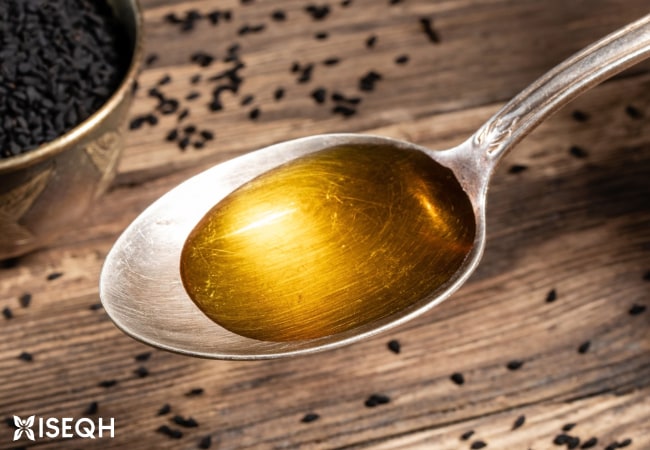
Table of Contents
Introduction
Black seed oil is an ancient remedy that has gained popularity recently due to its purported health benefits. It is extracted from the seeds of the Nigella sativa plant, which is native to Asia, Africa, and the Mediterranean. Black seed oil is rich in antioxidants, vitamins, and minerals, making it a popular natural supplement for various conditions, including respiratory issues, digestive problems, and skin disorders.
However, some concern is that black seed oil may cause kidney problems. In this article, we will explore the evidence for this claim and help you decide whether black seed oil is right for you.
What is Black Seed Oil?
Black seed oil, also known as black cumin oil, is derived from the seeds of the Nigella sativa plant. The plant has been used in traditional medicine for centuries. Historical records show that ancient Egyptian pharaohs used it to promote good health.
Black seed oil is rich in thymoquinone, a potent antioxidant with anti-inflammatory and antimicrobial properties. It is also high in essential fatty acids, such as linoleic acid and oleic acid, which are important for maintaining healthy skin and hair.
Can Black Seed Oil Cause Kidney Problems?
There have been some concerns that black seed oil may cause kidney problems, but little evidence supports this claim. Some studies suggest that black seed oil may be beneficial for kidney health.
One study published in the Journal of Ethnopharmacology found that black seed oil can help protect against kidney damage caused by diabetes. The study on rats found that black seed oil could reduce oxidative stress and inflammation in the kidneys, which are vital factors in developing diabetic nephropathy.
Another study published in the Saudi Journal of Kidney Diseases and Transplantation found that black seed oil may protect the kidneys of patients with chronic kidney disease. The study, conducted on human subjects, found that black seed oil could reduce inflammation and oxidative stress in the kidneys, which are key factors in the progression of chronic kidney disease.
Overall, little evidence suggests that black seed oil causes kidney problems. In fact, some studies suggest it may benefit kidney health.
How to Take Black Seed Oil
If you take black seed oil, it is essential to do so correctly to avoid any potential side effects. Here are some tips for taking black seed oil:
Consult with your healthcare provider: If you are taking any medications or have any medical conditions, it is important to consult your healthcare provider before taking black seed oil.
Start with a small dose: It is recommended to start with a small dose of black seed oil, such as one teaspoon per day, and gradually increase the dose over time.
Take with food: Black seed oil should be taken with food to avoid any potential stomach upset.
Store properly: Black seed oil should be stored in a cool, dry place away from direct sunlight.
Choose a high-quality product: Choosing a high-quality black seed oil product is important to ensure you get a pure and potent supplement.
Conclusion
In conclusion, little evidence suggests that black seed oil causes kidney problems. Some studies suggest that it may be beneficial for kidney health. However, taking black seed oil correctly is important to avoid any potential side effects. Suppose you are considering taking black seed oil. In that case, consulting with your healthcare provider and choosing a high-quality product is essential.








